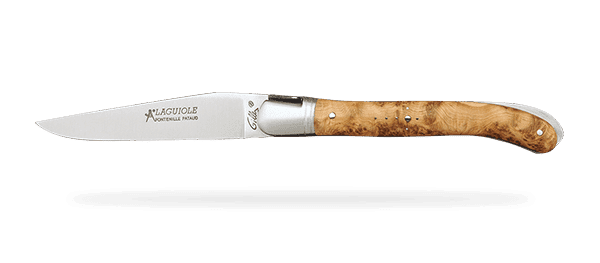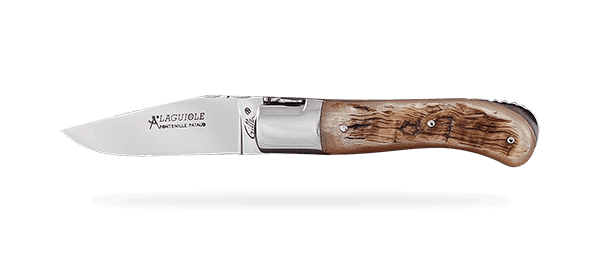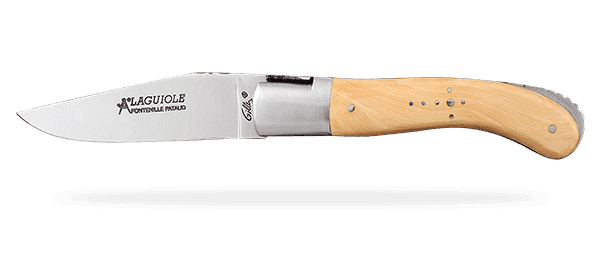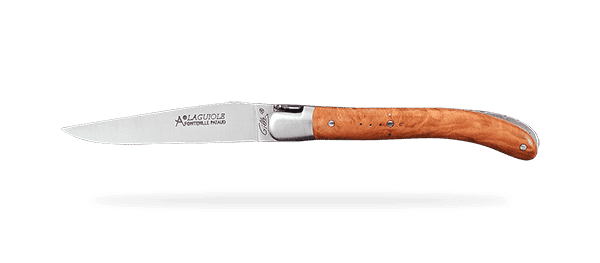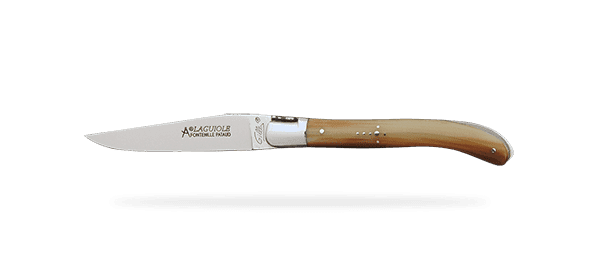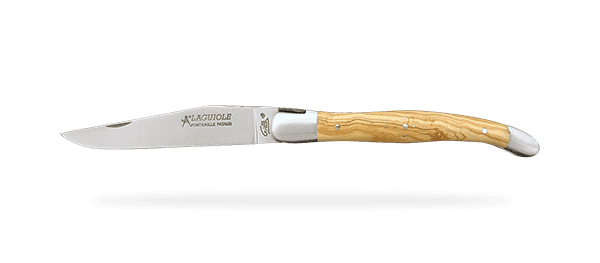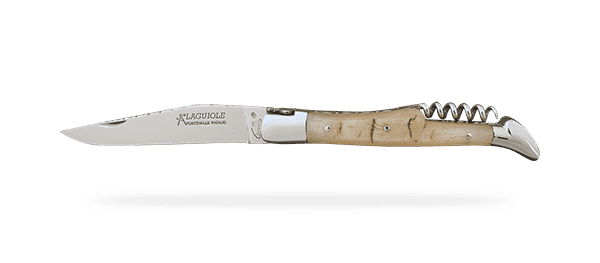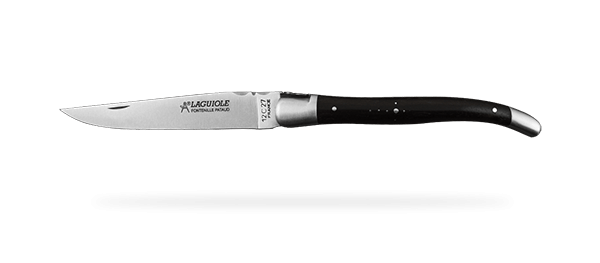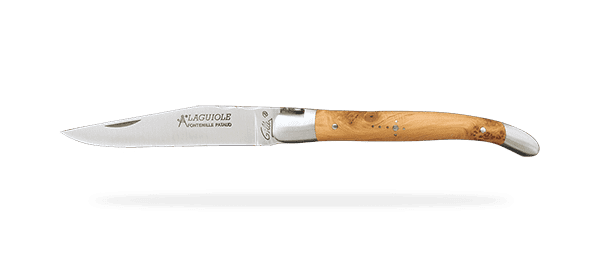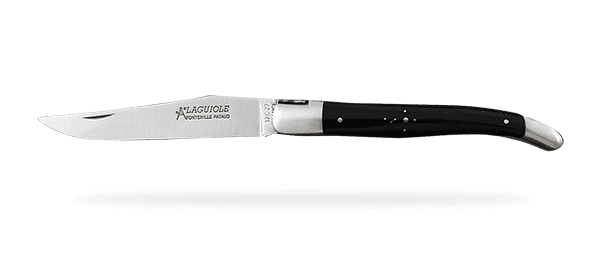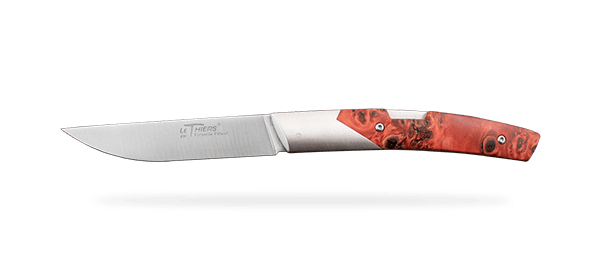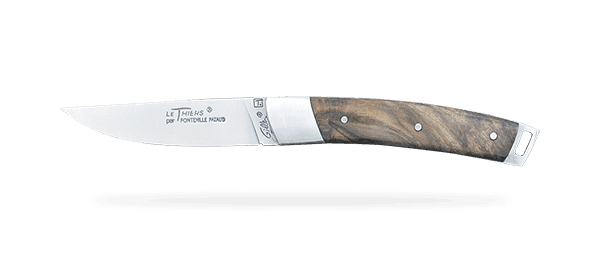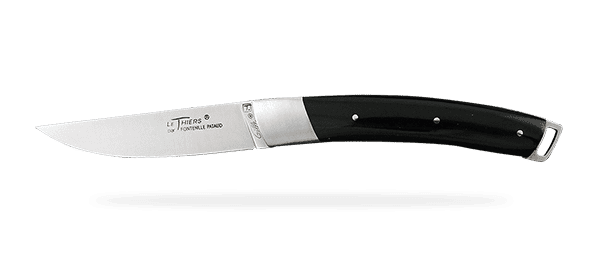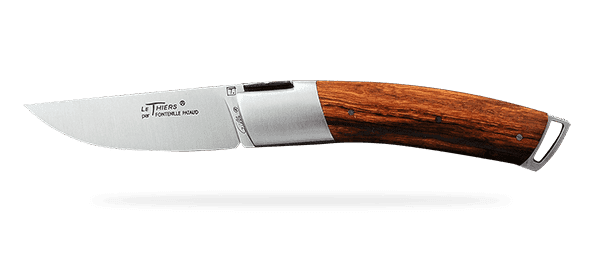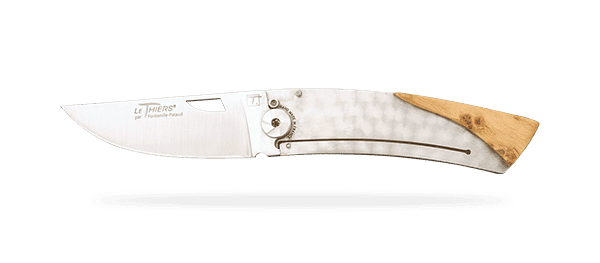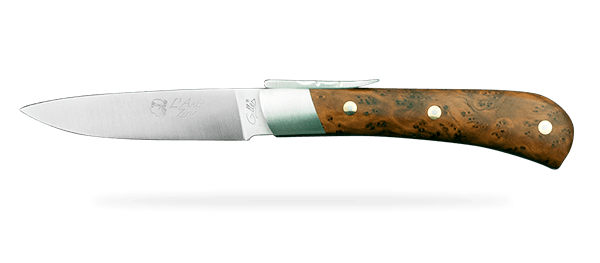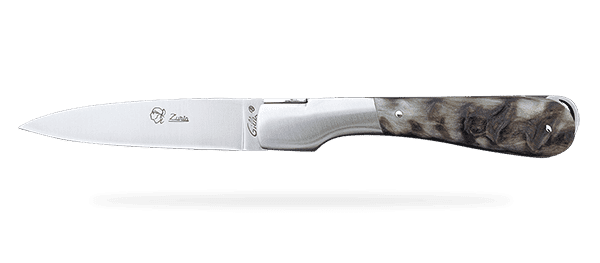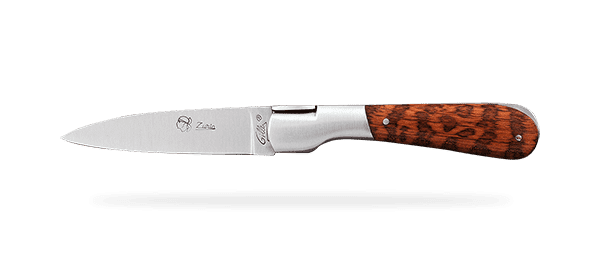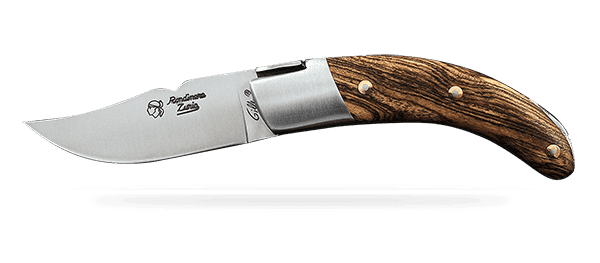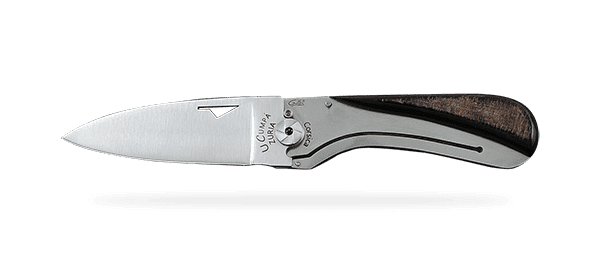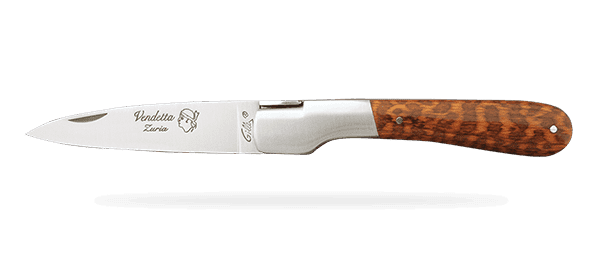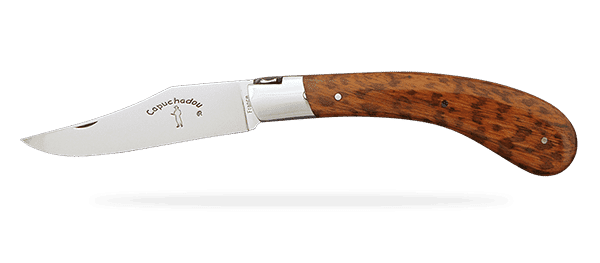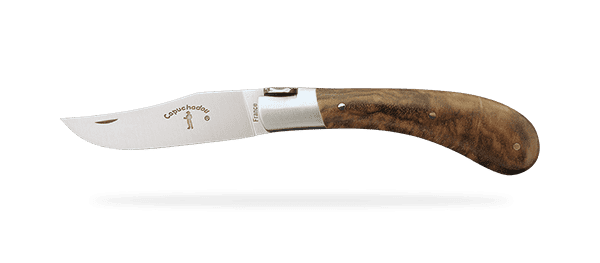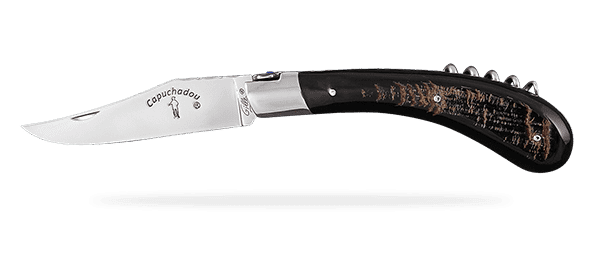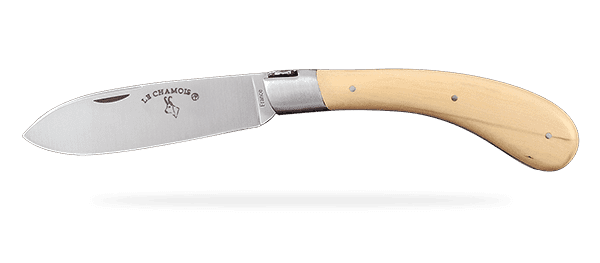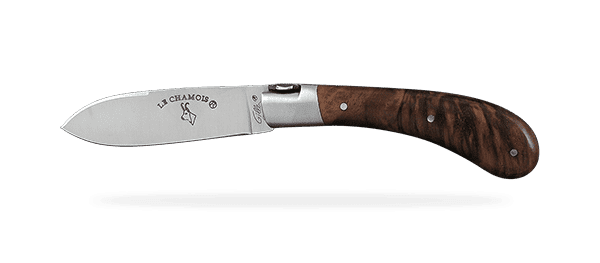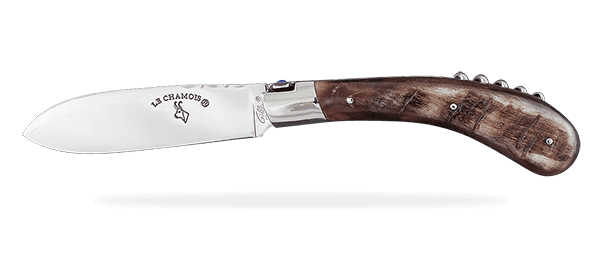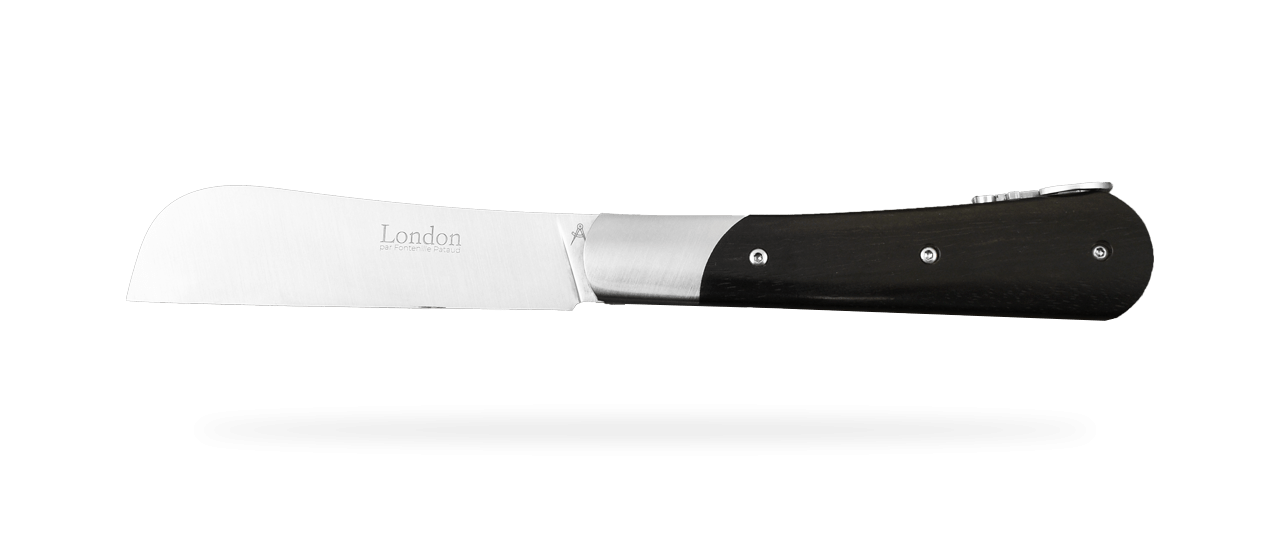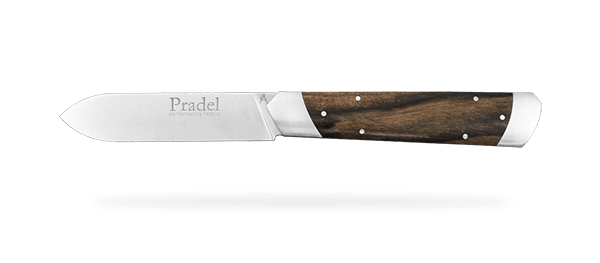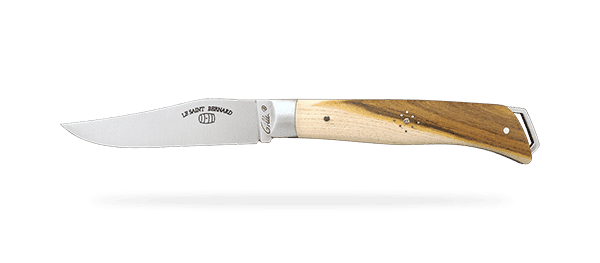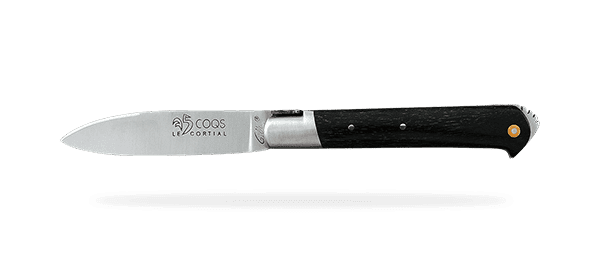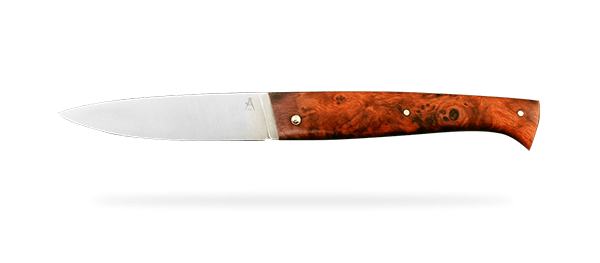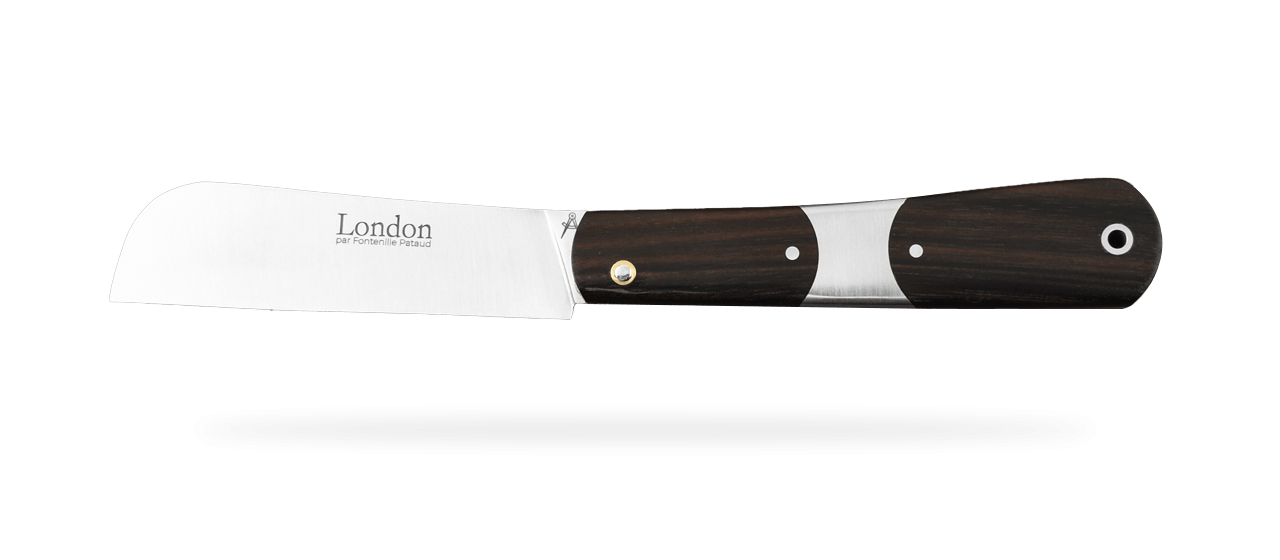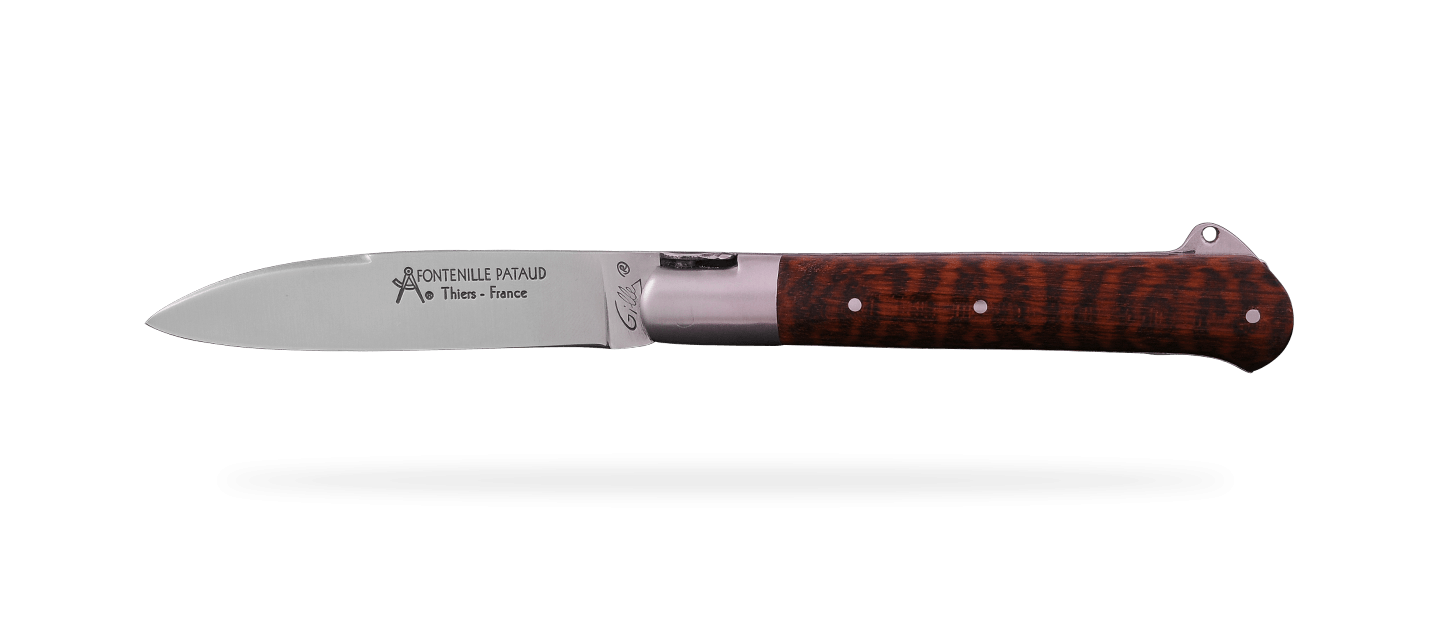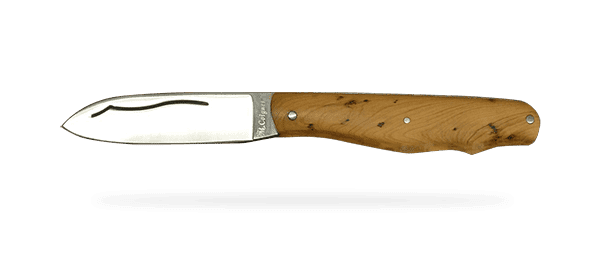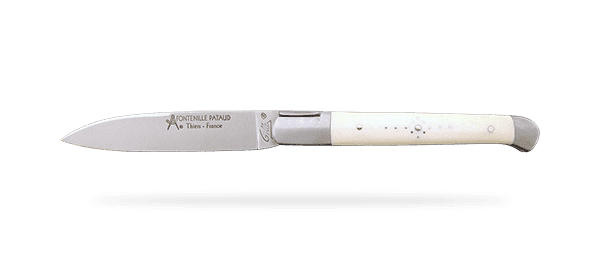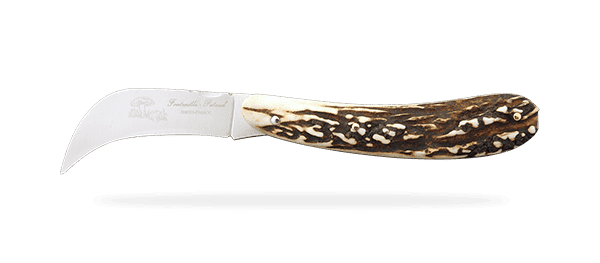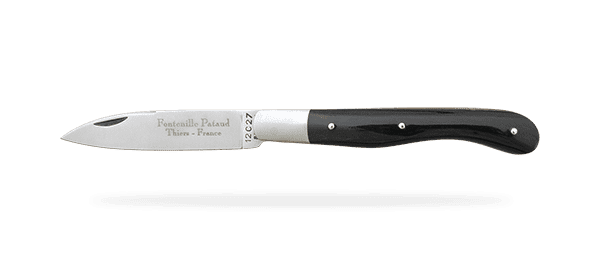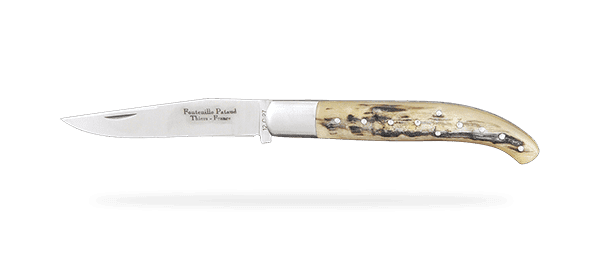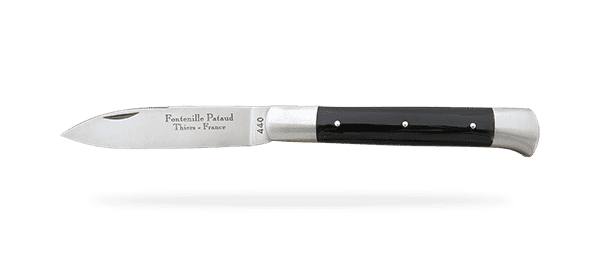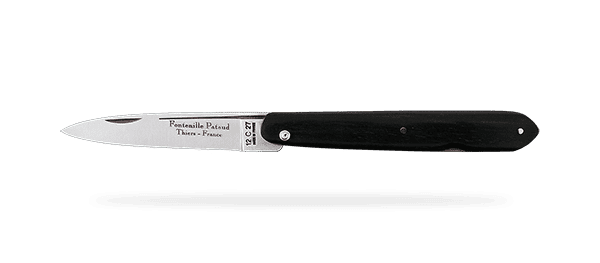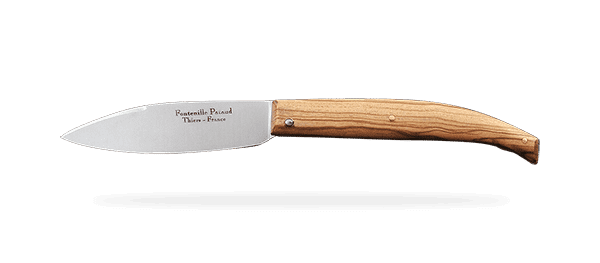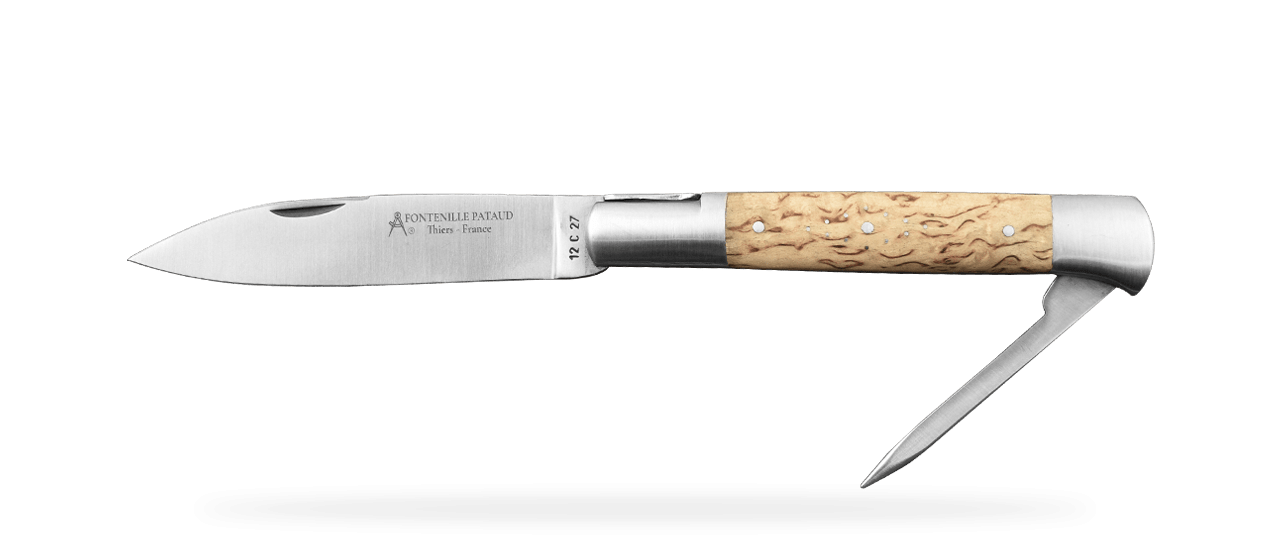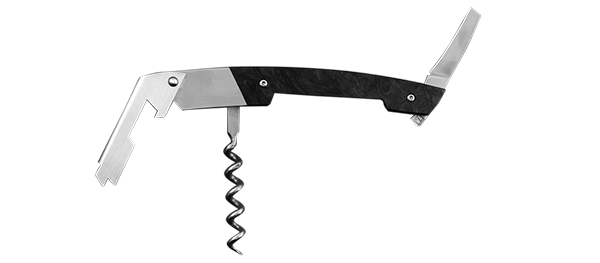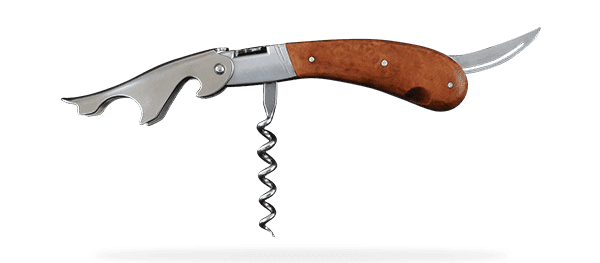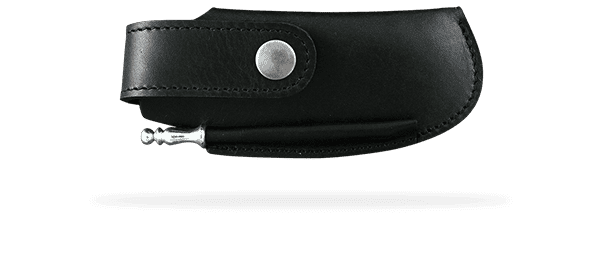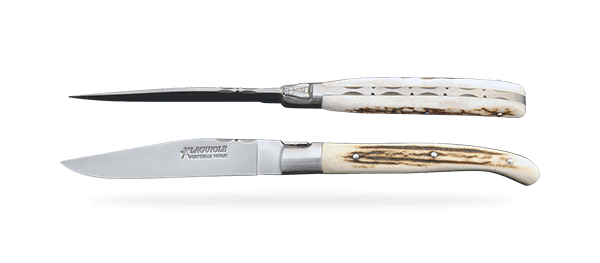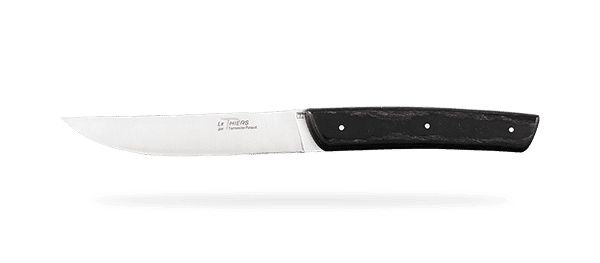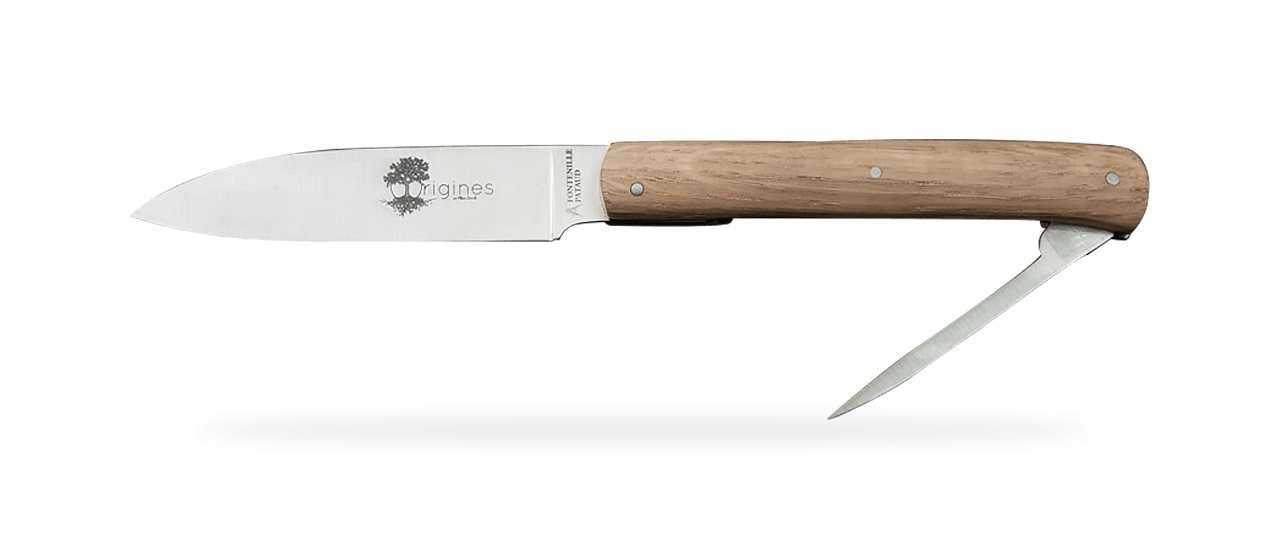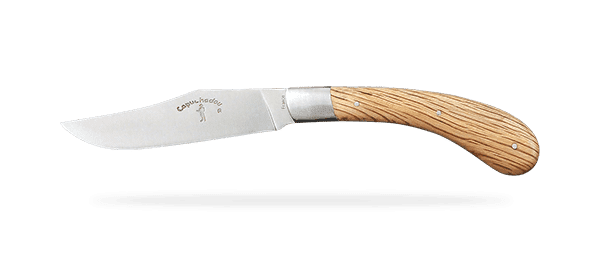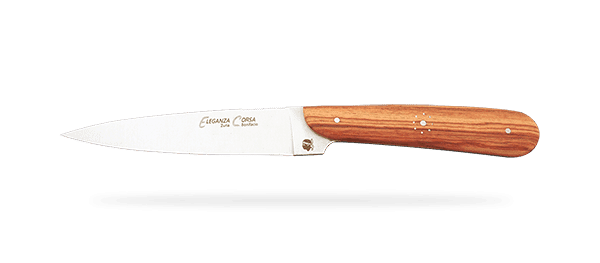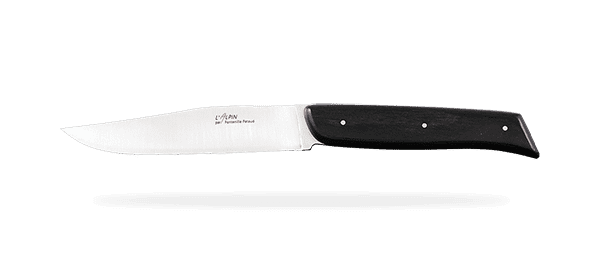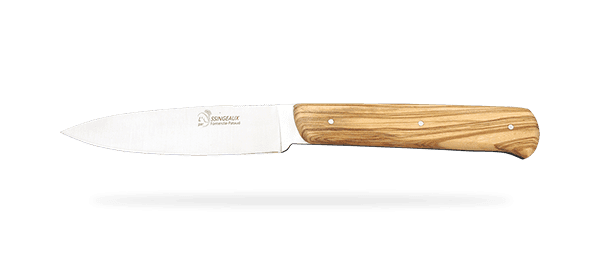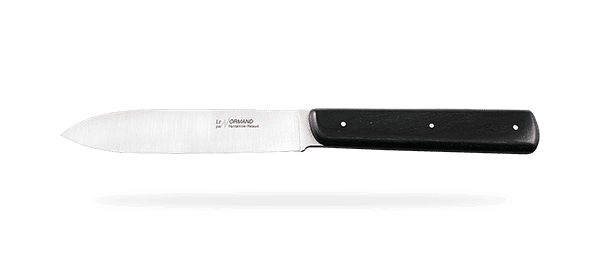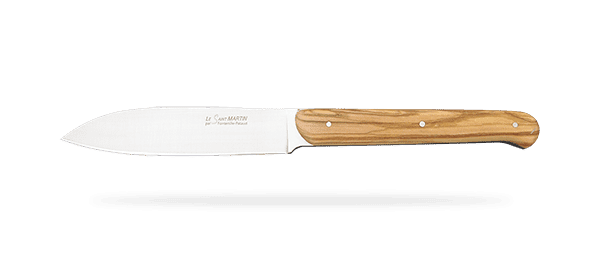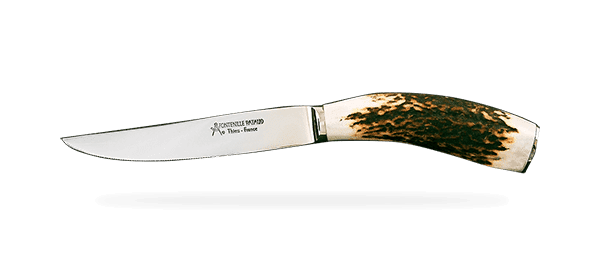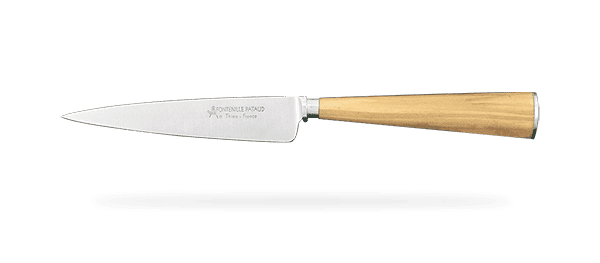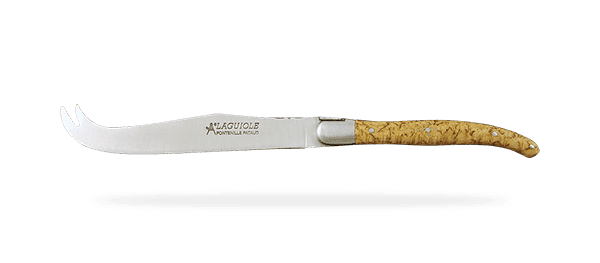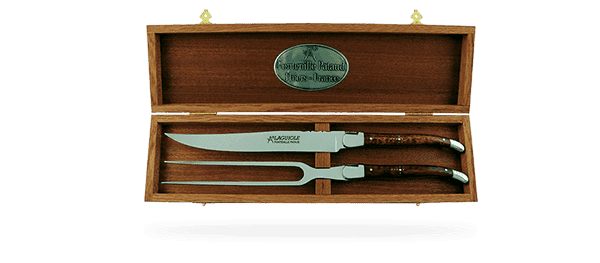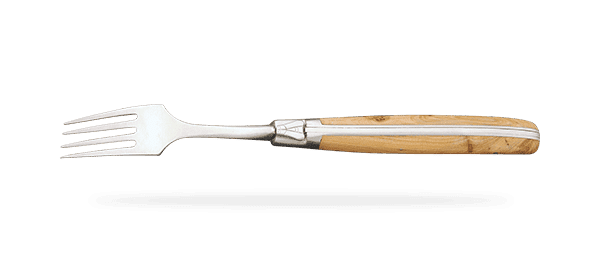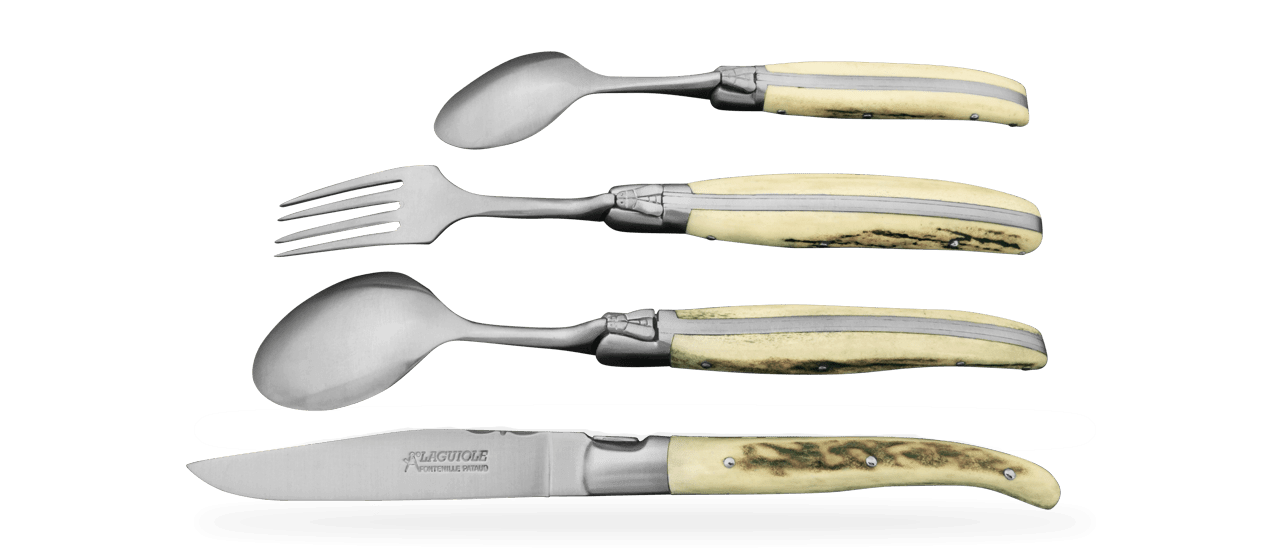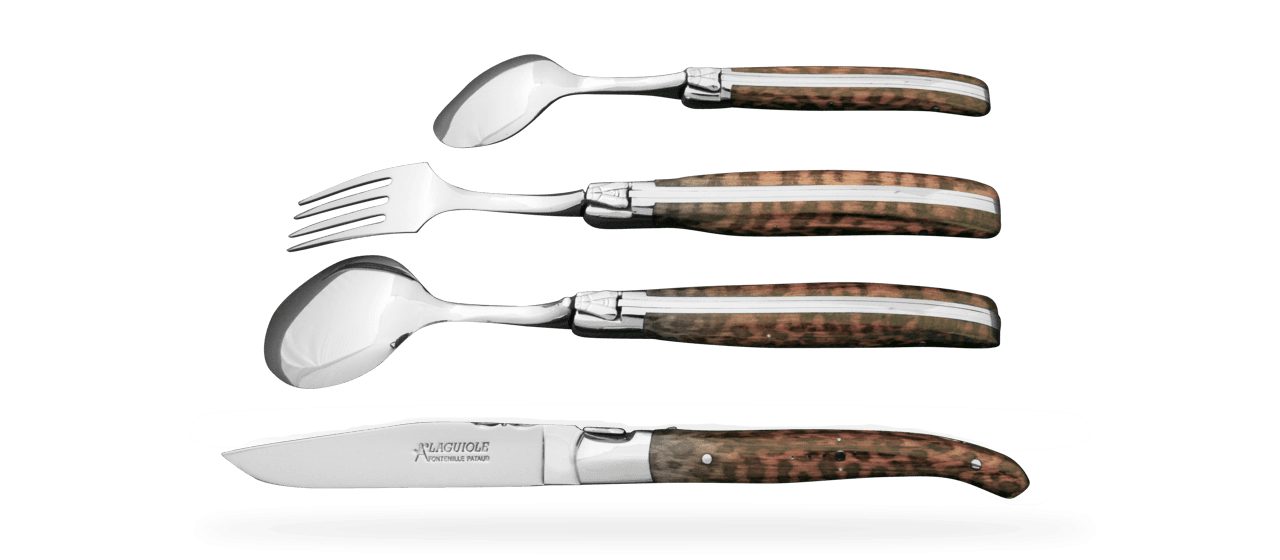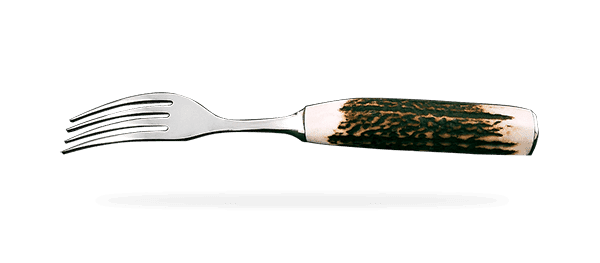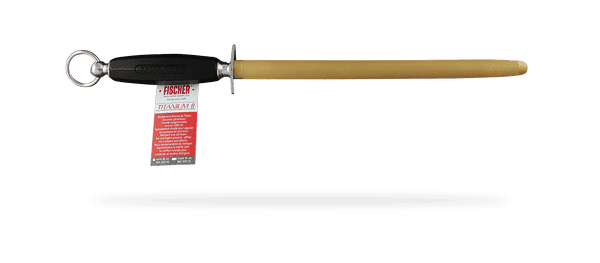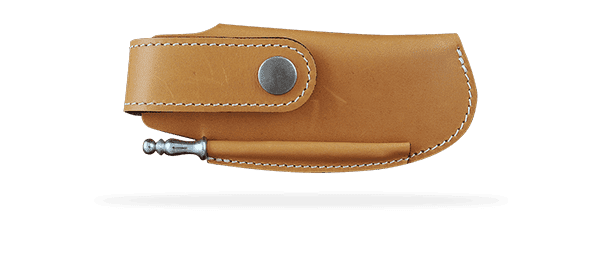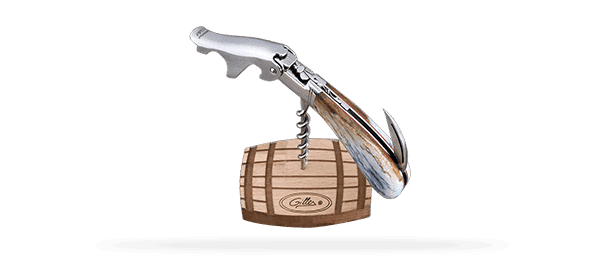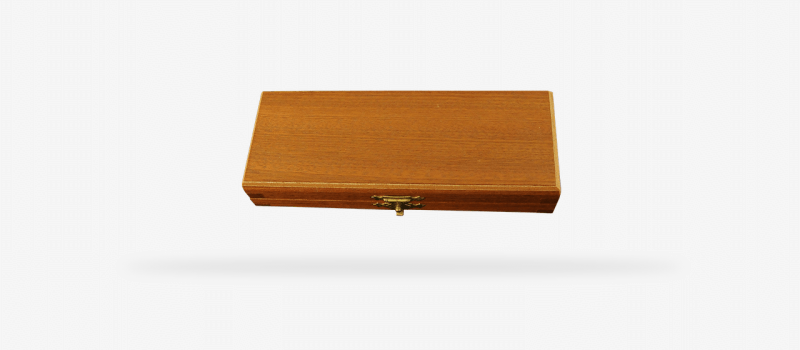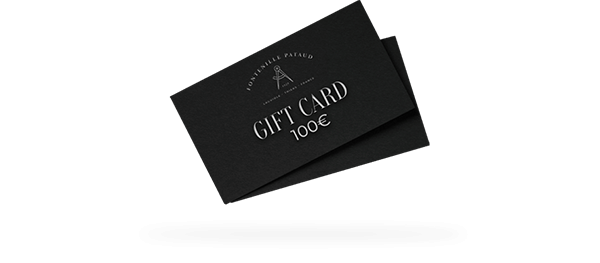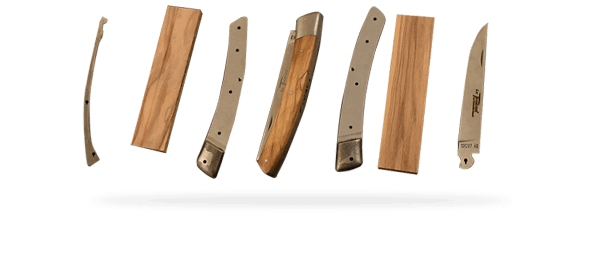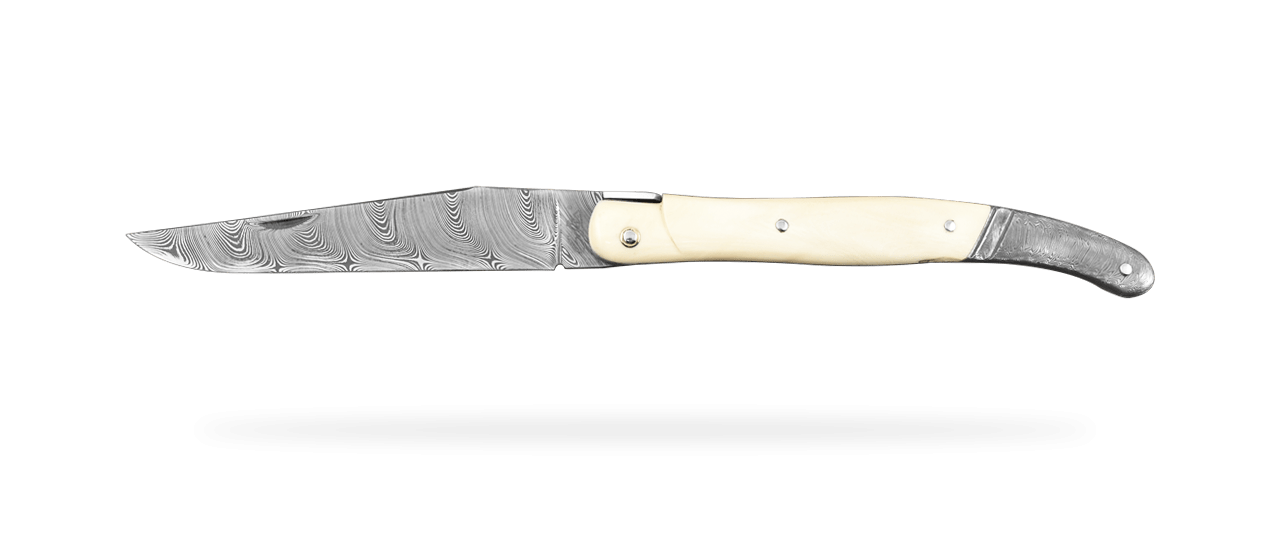Regulatory Affairs
Certain aspects of knife making, regardless of model, are subject to legislative restrictions.
You will find here all the information concerning the regulation of delicate materials such as ivory or tortoise shell. Finally, you will find all the information concerning the quality and the geographical origin of Laguiole knives (currently under study by the INPI - last maj 17-11-21).
Above all, and concerning the materials used for the manufacture, a serious and sincere merchant/manufacturer will answer without any falsehood to any request from you (quickly, and with official documents).
In order not to encourage smuggling, we recommend that you always ask the manufacturer and/or seller to present you with documents attesting to the legality of the origin of the material used (authorization to hold and use, certificate of origin, CITES...)
Ivories
Even if the most famous ivory is that of the elephant, the term actually refers to the natural material coming from the animal's teeth and/or tusks (such as that of the narwhal, the warthog, the rhinoceros or the hippopotamus).
Elephant ivory
Ivory is an exceptional material that has been used for centuries in many fields other than cutlery. However, we cannot deny today its impact on wildlife and the risk of extinction of species such as elephant and rhinoceros have drastically restricted its market. The latter has been subject to numerous regulations on its exports and imports.
It is still a very coveted material, but rare, involving illegal trafficking and poaching. The public authorities had to face this reality by setting up a stricter control on this raw material.
In 1973, CITES (Convention on International Trade in Endangered Species of Wild Fauna and Flora) was created to regulate the commercialization of ivory, among other things. But if since 1989 CITES prohibits all international trade of ivory, there are exemptions and tolerances that vary from country to country.
In France, following the order of May 4, 2017, amending the order of August 16, 2016 on the prohibition of trade in elephant ivory and rhinoceros horn on national territory:
- The trade of raw ivory is prohibited (whole tusk or piece of horn) in France and in the European Union. It is also forbidden to market any ivory worked after July 1st 1975.
However, the law is complex because there are exceptions, for example for the keys and pulls of ivory keyboard instruments or the bows of stringed instruments or specimens for exhibition and research...
Returning to cutlery, "the offering for sale, sale and purchase, within nine months from the publication of this order (that is, from u July 1, 1975), of new cutlery, other cutlery or smokers' items manufactured before August 18, 2016 using ivory whose age is prior to January 18, 1990."
Therefore, we no longer manufacture and sell folding knives, table knives and wine steins with elephant ivory. You will find here the list of all the materials, in particular animal materials, that we use for the manufacture of our entire range of cutlery.
Mammoth ivory
Mammoth ivory has recently become a staple in cutlery. The supply of this material is made possible by the melting of the permafrost in Siberia. As for any material subject to specific legislation, we provide you with the necessary documentation for the commercial exploitation of this material.
Tortoise shell
It is a common misconception that tortoise shell is a forbidden material to use.
This is not true: the manufacture and sale of tortoiseshell knives is not prohibited, but strictly regulated by international regulations (CITES), as are other endangered animal and plant species.
According to the decree of October 14, 2005 - Article 9:
Are subjected to authorization of the prefect of the department of the head office of the company, in metropolitan France and in the department of Reunion, the detention and the use, by the manufacturers or the restorers of objects which are made up of it, of the specimens :
- of the species Eretmochelys imbricata from the stocks of scales declared to the Ministry of the Environment before October 1, 1993;
- of the species Chelonia mydas from the scale stocks declared to the prefect of the department of the place of detention before December 31, 2001;
- of the species Eretmochelys imbricata and Chelonia mydas acquired in accordance with the provisions of Council Regulation (EC) No. 338/97 of December 9, 1996 mentioned above.
As for any material subject to a specific legislation, we provide you with the necessary documentation for the commercial exploitation of this material.
We add that we are aware of the scarcity of these natural materials which have always made the most beautiful articles of cutlery. As these natural resources are in very limited supply, we make sure to treat them with respect: no unnecessary waste, never undeclared purchases or sales.
Laguiole knives
"Laguiole" is not a registered trademark for knives.
More precisely, "Laguiole" is the name of a small village of 1200 inhabitants located at 1000 meters of altitude on the Aubrac plateau. This plateau is located on the borders of Cantal, Lozere and Aveyron. The name "Laguiole" does not designate a company or a label but a form of traditional knife.
Legally, the Laguiole knife is not "protectable": the Court of Appeal of Riom (Puy-de-Dôme) considered that for a knife, "Laguiole" is a "generic" word. Note the existence of an A.O.C Laguiole which concerns the local cheese.
An application for a protected geographical indication of origin (IG) is underway at the National Institute of Intellectual Property (INPI), in order to guarantee the French and artisanal manufacture of Laguiole knives to consumers.
Indeed, following the Hamon law of March 17, 2014 and its application decree of June 3, 2015, the protection of food abords (Protected Geographical Indication, or PGI) now extends to manufactured products and natural resources.
You can currently find in the shops (including in the village of Laguiole or in Thiers) knives of poor quality that are stamped "Laguiole" and therefore legally manufactured. You have no guarantee on these items.
The Laguiole knife is historically handcrafted in Thiers and Laguiole. In the field of cutlery, there is no "Laguiole" brand, the word "Laguiole" has become a generic term. The registered name "Laguiole" will always be associated with the workshop or the cutler who made it.
Laguiole is nowadays one of the most produced regional knives in France, but it is also exported all over the world and represents the French know-how. It is also important to point out that many imported knives of poor quality damage the image of this product, hence the approach to the INPI.

